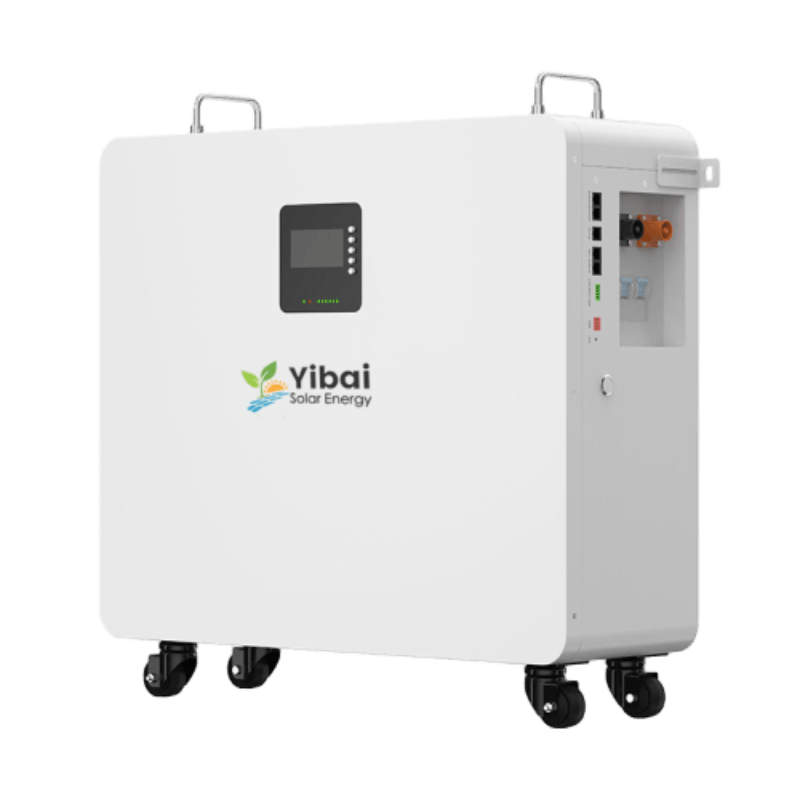في عالم اليوم، تعمل بطاريات الليثيوم على تشغيل مجموعة كبيرة ومتنوعة من الأدوات، من الهواتف الذكية وأجهزة الكمبيوتر المحمولة إلى السيارات الكهربائية و أنظمة تخزين الطاقة المتجددة. وعلى الرغم من أن هذه البطاريات توفر أداءً رائعًا واقتصادًا ملحوظًا، إلا أنها تطرح أيضًا مشاكل بيئية عندما يتعلق الأمر بالتخلص منها. يعد التخلص السليم من بطاريات الليثيوم أمرًا حيويًا لتجنب أي تأثير بيئي ولضمان إعادة استخدام مكوناتها بشكل صحيح.
سبب أهمية التخلص السليم من النفايات
تشتمل بطاريات الليثيوم على عناصر خطرة مثل الليثيوم والكوبالت والنيكل، والتي قد تكون ضارة بالبيئة إذا لم يتم التعامل معها بعناية. عند التخلص منها بطريقة غير قانونية، قد تنبعث من هذه البطاريات مركبات خطرة في الأرض والمياه، مما يسبب تهديدات للنظم البيئية وصحة الإنسان. وبالإضافة إلى ذلك، قد تشكل بطاريات الليثيوم خطر نشوب حريق في حال انكسارها أو تعرضها لدرجات حرارة مفرطة أثناء التخلص منها.
وعلاوة على ذلك، تعد بطاريات الليثيوم من الموارد الهامة التي تتضمن مكونات يمكن إعادة استخدامها وإعادة استخدامها. وبالتخلص منها بشكل مناسب، يمكننا استعادة موارد ثمينة وتقليل الحاجة إلى استخراج مواد جديدة والحد من التأثير البيئي لتصنيع البطاريات.
كيفية التخلص من بطاريات الليثيوم بأمان
تحقق من اللوائح المحلية: قبل التخلص من بطاريات الليثيوم، تعرف على التشريعات المحلية التي تنظم التخلص من البطاريات. فبعض الأماكن لديها متطلبات خاصة لتخزين البطاريات وإعادة تدويرها، ومن الضروري الامتثال لهذه القوانين لضمان التخلص الآمن من البطاريات.
- مراكز إعادة التدوير: توفر العديد من المحليات مراكز إعادة التدوير أو مواقع التسليم التي تقبل بطاريات الليثيوم لإعادة تدويرها. هذه المرافق مهيأة للتعامل مع المواد الكيميائية الخطرة بشكل آمن وتضمن إعادة تدوير البطاريات بطريقة مناسبة بيئياً. تحقق من منشأة إعادة التدوير المحلية لمعرفة ما إذا كانت تقبل بطاريات الليثيوم وكيفية إعدادها بشكل صحيح لإعادة التدوير.
- برامج بائعي التجزئة: يوفر بعض بائعي التجزئة ومصنعي الإلكترونيات برامج إعادة تدوير البطاريات، مما يتيح للمستهلكين إعادة البطاريات القديمة لإعادة تدويرها. وكثيراً ما تكون هذه التطبيقات في متناول اليد وقد تأخذ البطاريات من مجموعة من الأجهزة، بما في ذلك الهواتف المحمولة وأجهزة الكمبيوتر المحمولة والبطاريات القابلة لإعادة الشحن.
- فعاليات إعادة تدوير البطاريات: ابحث عن فعاليات إعادة تدوير البطاريات في بلدتك. وعادة ما تستضيف هذه الأنشطة الوكالات الحكومية المحلية أو المجموعات البيئية وتتيح الفرصة للمواطنين للتخلص من البطاريات وغيرها من السلع الخطرة بشكل صحيح.
- تخلص من البطاريات التالفة بشكل صحيح: إذا كانت بطارية الليثيوم مكسورة أو مسربة أو منتفخة، فيجب التعامل معها بحذر شديد. ضع البطاريات في حاوية غير معدنية وانقلها إلى مرفق للتخلص من النفايات الخطرة أو اتصل بالسلطات المحلية للحصول على تعليمات بشأن التخلص الآمن منها.

نصائح للتخلص الآمن من البطاريات
- تعامل بحذر: عند التعامل مع بطاريات الليثيوم، تجنب ثقبها أو سحقها أو تعريضها لدرجات حرارة مفرطة، لأن هذه الأفعال قد تزيد من خطر نشوب حريق أو تسرب.
- أطراف الغطاء: قبل إعادة تدوير البطاريات أو التخلص منها، قم بتغطية الأطراف بشريط لاصق لتجنب حدوث ماس كهربائي والحد من خطر الحوادث.
- بطاريات منفصلة: في حالة التخلص من العديد من البطاريات، احتفظ بها منفصلة عن بعضها البعض لتجنب تلامسها مع بعضها البعض، مما قد يؤدي إلى حدوث ماس كهربائي أو حرائق.
- توصية وكالة حماية البيئة: ابحث عن موقع لإعادة تدوير بطاريات ليثيوم أيون والسلع التي تحتوي على بطاريات ليثيوم أيون باستخدام أحد الروابط المدرجة؛ لا ترميها في القمامة أو في صناديق إعادة التدوير البلدية.
- بطاريات الليثيوم أيون في الإلكترونيات: أرسل المعدات الإلكترونية التي تحتوي على بطاريات ليثيوم أيون إلى شركات إعادة تدوير الإلكترونيات المعتمدة والتجار المشاركين في برامج استرداد الإلكترونيات أو اتصل ببرنامج جمع النفايات الصلبة أو برنامج جمع النفايات الخطرة المحلية للحصول على مزيد من الإمكانيات.
بطاريات Li-ion التي يمكن فصلها بسهولة عن المنتج (مثل الأدوات الكهربائية): ابحث عن موقع إعادة تدوير قريب منك للتخلص من بطاريات Li-ion بشكل صحيح. أرسل بطاريات فردية إلى شركات إعادة تدوير البطاريات المتخصصة أو التجار المشاركين في برامج الاسترجاع أو اتصل ببرنامج النفايات الصلبة المحلي أو برنامج النفايات الخطرة المحلية للحصول على مزيد من الإمكانيات.
التخلص السليم من بطاريات الليثيوم أمر بالغ الأهمية لحماية البيئة وصحة الإنسان. باتباع المعايير الواردة في هذا الدليل، يمكنك ضمان إعادة تدوير البطاريات بطريقة أخلاقية واستعادة المواد الثمينة لاستخدامها في المستقبل. تذكر أن تتحقق من القواعد المحلية واستخدم برامج إعادة التدوير المتاحة للتخلص من البطاريات بأمان وكفاءة. يمكننا معًا تقليل التأثير البيئي للتخلص من البطاريات والمضي قدمًا نحو مستقبل أكثر استدامة.
